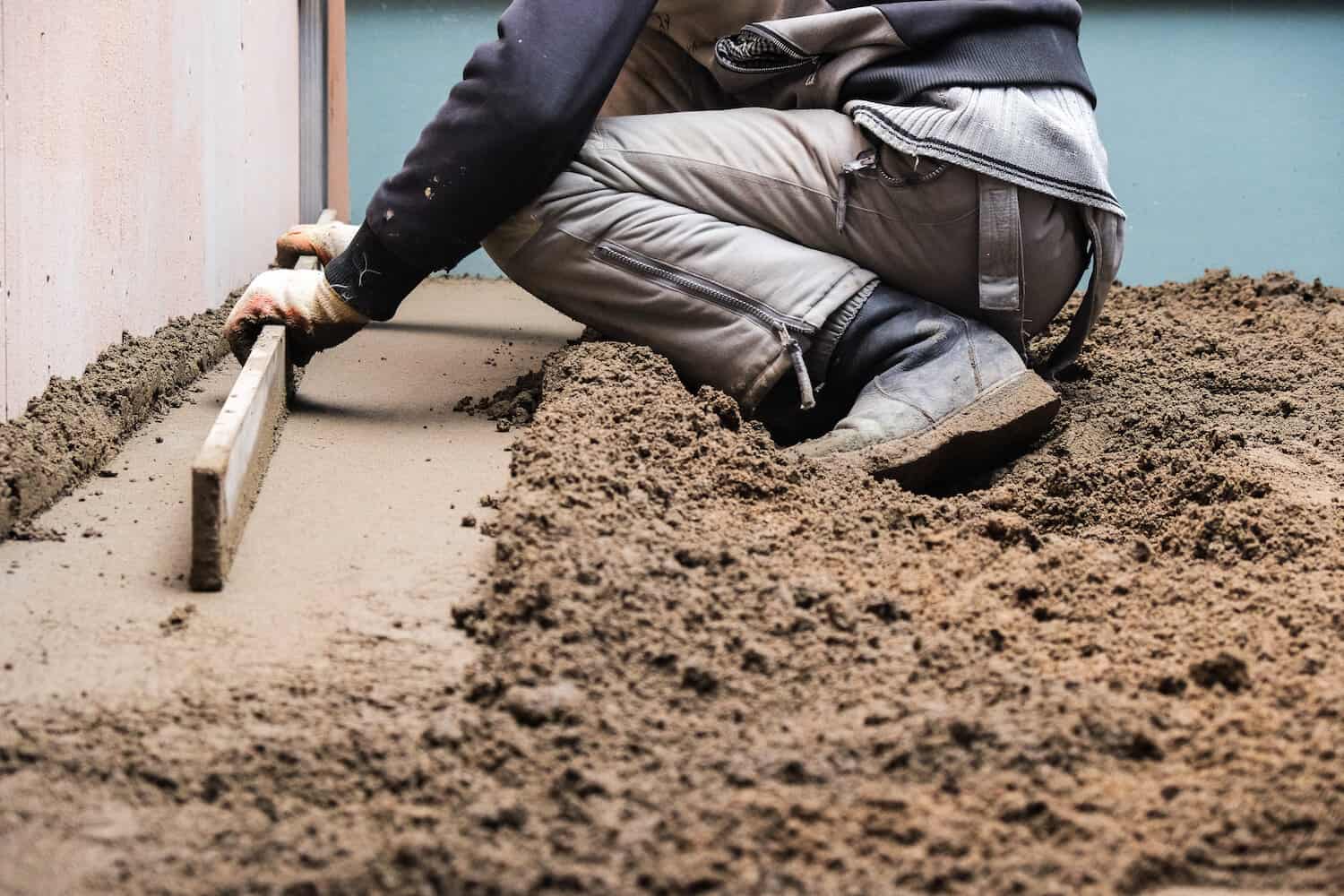Your home is your sanctuary, but what happens when the foundation starts to give way? Foundation problems can compromise the integrity of your house, causing structural damage and lowering its value. It’s important to spot signs of foundation problems early and find guaranteed solutions before it’s too late.
In this post, we’ll cover everything you need to know about foundation issues, including the top 10 signs of foundation issues and how to fix them.
We’ll also provide additional tips on how to keep your home safe and sound. Don’t wait until it’s too late – learn how to identify any potential issues with your foundation and protect your investment today!
Experiencing Foundation Issues?
Early identification of signs of foundation issues can prevent expensive repairs in the future. It’s crucial to address these problems promptly to avoid any structural damage to your home. Seeking professional advice is recommended to determine the best course of action for your foundation. Take action as soon as you notice any signs to prevent further damage and expenses.
Guaranteed Solutions for Foundation Problems
Professional foundation repair experts offer long-term solutions for your home’s foundation issues, potentially saving you from costly repairs in the future.
Free inspections by foundation repair contractors help diagnose problems quickly. Addressing issues promptly preserves your home’s structural integrity, avoiding bouncy floors, rotten wood, and pest infestations caused by foundation problems.
The Most Common Signs of Foundation Issues
Recognizing signs of foundation issues, such as small cracks or separating structures, is crucial for maintaining the structural integrity of your home. By understanding these signs, homeowners can take proactive measures to prevent further damage and seek expert inspection and repair. Protect your investment by being aware of the signs of foundation issues.
Cracks in the Drywall
Cracks can form in your drywall for many different reasons. If you live in a high humidity location, the moisture can cause cracks in your walls over time. Water damage from your roof can also cause cracks in the walls. But if your gutter systems are in great shape, your attic insulation is fine, and humidity is not an issue, these cracks could mean your foundation’s uneven.
Cracks in Your Exterior Walls
Although drywall cracks are a common symptom of different house ailments, cracks in your exterior walls are almost always a foundation issue. Your brick siding can become uneven as the soil shifts under the house and the home adjusts.
There Are a Lot of Bugs in Your House
Every homeowner has to deal with their fair share of pests on occasion. If your home seems to have a strangely high number of bugs, it could be a sign that there are cracks in your foundation. Centipedes, pill bugs, earwigs, carpenter ants, and roaches are drawn to damper areas and will usually make their way into your house through foundation cracks.
Your Floors Are Uneven or Sagging
As your foundation shifts, so will your floors. You might notice you can easily send a ball rolling down your living room floor or there are soft spots in your flooring. Inadequate foundation waterproofing can cause water to creep in and warp your floors.
Your Doors and Windows are Sticking
Sticky doors and windows can sometimes be caused by humidity. The wood in the door or windows expands with the moisture, making it harder for them to work properly. But if there isn’t any humidity in your area and your doors and windows are consistently sticking for no apparent reason, it could be that your foundation is shifting. This happens as the foundation moves and the door or window frame twists out of balance.
There Are Cracks Above Your Windows
Going off “5.”, when your window and door frames twist out of balance as your foundation shifts, this can cause cracks in the frames.
There’s Moisture in Your Crawl Space or Basement
Some homes that have foundation issues will have moisture in their crawl spaces or a wet, leaking basement. The moisture gets in through foundational cracks and can cause musty smells, mold growth, uneven floors, and sagging floorboards.
You Have Bowing Walls
Untreated cracks in your walls can sometimes lead to bowing. Bowed walls happen because of the soil movement under the foundation. The soil movement causes hydrostatic pressure and poor water drainage. This causes moisture buildup and pressure to bow your walls so they look like they’re folding in.
Your Walls Are Separating From Your House
Wall separation can sometimes be caused by bowing, but not necessarily. As the soil moves and your floors shift, the walls on your house will start to separate from the roof and the rest of the structure.
There’s Space Between the Wall and Ceiling or Floor
Speaking of wall separation, another way you can tell there are foundational issues is when there’s space between your wall and the ceiling or your wall and the floor. This is usually a warning sign that wall separation is beginning to happen.
Spot Signs of Foundation Problems Before It’s Too Late
Spotting signs of foundation issues before it’s too late is crucial. Look for cracks in walls or floors, uneven/sloping floors, sticking doors/windows, and gaps around them. Also, be mindful of cracks in exterior brick or concrete, and a sagging/uneven roofline. Identifying these signs early can prevent further damage to your house foundation. Regular maintenance and timely intervention are the next steps.
Use a Level and Check for Mold
Inspecting your home for signs of foundation issues is crucial. Cracks in walls and ceilings, uneven floors, and difficulty opening or closing doors may indicate underlying problems. Additionally, exterior brickwork that is cracked or leaning could be a sign of foundation damage. Check for moisture buildup in basements and crawl spaces, as it can lead to mold growth—a clear indication of possible foundation issues. Using a level to check for any sloping or unevenness is the next step in this process.
Check the Drainage
Inspecting for foundation issues? Look for cracks in walls or exterior brick, uneven floors, bulging walls, and gaps around windows. Water seepage in the basement may also indicate a problem. Adequate drainage is crucial. Ensure that water flows away from the house foundation. This can prevent bouncy floors, rotten wood, and issues with pests like termites due to excess humidity.
Inspect Trees and Vegetation
Inspecting trees and vegetation around the house foundation is crucial. Cracks in the soil near plants can signal root growth and soil displacement. Large trees with deep roots may cause damage over time. Standing water near trees can indicate drainage issues. Regularly trimming them is a good DIY practice for preventing overgrowth and potential foundation damage.
Check Gutters and Downspouts
Inspecting gutters and downspouts is essential for spotting signs of foundation issues. Look for cracks in the foundation, walls, or floors of your home. Also, check for uneven floors or doors that do not close properly. Examine the exterior of your home for any signs of sinking or settling, as well as water damage and mold, which can all be indicators of potential foundation issues.
Additional Signs of Foundation Issues
When your floors feel bouncy or show sloping, it could signal foundation problems. Look for cracked walls, sticking doors or windows, and gaps between walls and floors. Exterior brick or concrete cracks, plumbing issues, rotten wood, or carpenter ants are also red flags. Regular maintenance is key; keep an eye out for pests, termites, and humidity levels to spot foundation issues early.
Cracks in the Tile
Cracks in the tile, especially diagonal ones wider at one end, may indicate underlying foundation issues. Additionally, cracks in the grout lines and uneven or loose tiles can point to foundation settling. If these signs are present, it’s essential to consult a professional for a thorough assessment and any necessary repairs. This proactive approach is crucial for maintaining the integrity of your house foundation and ensuring its stability.
Doors Out of Alignment
Doors becoming misaligned may indicate underlying foundation issues, possibly due to settling. Binding or sticking doors could be a result of foundation settlement. Doors that swing open or close on their own may be a sign of foundation problems. Cracked door frames can also indicate potential foundation damage, while uneven floors can cause doors to become misaligned.
Windows Don’t Work Properly
Windows that are difficult to open might signify potential foundation issues. Cracked window panes can serve as an indicator of foundation settlement. Additionally, windows that won’t stay open or have difficulty locking could point to foundation problems. Moreover, gaps around window frames might signal underlying foundation issues.
Water Stagnates Near The Foundation
Water accumulation proximal to the foundation may indicate drainage issues, posing potential structural damage. Excessive moisture in this area can lead to serious problems, emphasizing the need for regular maintenance and vigilance. The presence of persistent puddles near the house foundation is an indicator of poor drainage and may signal the next step towards addressing potential foundation concerns.
Foundation Upheaval
Noticeable cracks in basement walls signal potential foundation upheaval, likely caused by soil expansion. This upheaval can result in uneven floors and diagonal cracks in the foundation, along with exterior wall cracks. Addressing this issue promptly with professional help can prevent further damage to your home’s foundation and structural integrity, ensuring long-term stability.
Keep Your Home Safe and Sound
The majority of homes in Texas that were built less than 50 years ago have a slab foundation. But sometimes the soil under your house can shift and cause an uneven foundation over time.
Perma Pier Foundation Repair of Texas offers soil analysis, drainage services, and foundation repair to ensure your home is as stable and secure as possible. To learn more about our residential foundation repair services, contact us today to schedule your free evaluation.


